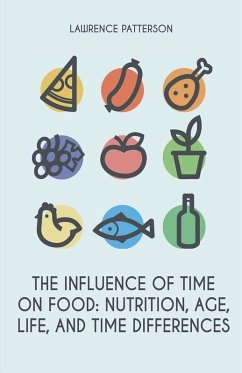The effects of food on people's health and well-being are significant today. Food has long been recognized as necessary for basic human survival. Actual nutrition-focused work began in the early 20th Century when average life expectancies at birth in the United States ranged between 50 and 60 years, and infectious diseases ranked as the leaded cause of death. By the mid-Century, advances in technology, public health knowledge and practice, and understanding of nutrition and health paved the way for dramatic increases in life expectancy as infectious diseases gave way to chronic and degenerative health conditions-as conditions caused by overnutrition became dominant over those generated by undernutrition. Clearly underrepresented in ongoing nutrition research are examinations of food intake variability, including most prominently the influences of 'time,' as expressed through age and the passage of calendar dates, and of 'diversity,' as captured by both the characteristics of people and the cultural, social, economic, and political elements of historical context. In short, knowledge and understanding of how and why food intake changes among different groups of people, from birth through death and from the past through the present day, remains poor. Culture plays a role in producing food identities and routines that develop over time. Individual food culture may influence the foods consumed during meals. Food culture evolves over time due to the introduction of new food types, social interactions, and shared food experiences. Another aspect lacking in current conceptual and process models of nutrition is the influence of historical events. Changes in the food industry or distribution impact food decisions. The food industry has evolved significantly over the last fifty years. Many areas of the United States historically relied on local farms for their food supply. Foods purchased in food stores were limited to basic necessities like flour, sugar, and salt. Now food is available from local, regional, and global food production markets.
Hinweis: Dieser Artikel kann nur an eine deutsche Lieferadresse ausgeliefert werden.
Hinweis: Dieser Artikel kann nur an eine deutsche Lieferadresse ausgeliefert werden.








